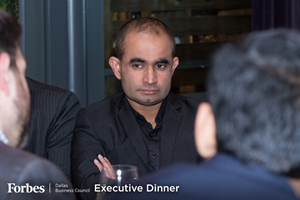Empowering Leadership: The Sabeer Nelli Approach at Zil Money
June 27, 2025, 5:59 pm
In the fast-paced world of startups, leadership often becomes a bottleneck. Founders, driven by passion and expertise, can inadvertently stifle growth. Sabeer Nelli, the founder and CEO of Zil Money, is rewriting this narrative. He champions a model where leadership is not confined to the top but is distributed across the organization. This strategy is not just innovative; it’s essential for sustainable growth.
At Zil Money, leadership is a shared responsibility. Nelli understands that as companies expand, the traditional hero-leader model can falter. When every decision filters through one person, bottlenecks form. Talented individuals feel stifled, and innovation slows. Nelli recognized these pitfalls early on and built Zil Money to avoid them.
Empowerment at Zil Money is not an afterthought; it’s woven into the fabric of the company. From the moment new hires step through the door, they are told, “This is your domain. You own it.” This mindset transforms employees from mere executors of tasks into proactive leaders. Product managers set the roadmap, engineers propose feature enhancements, and support leads tackle systemic issues head-on.
Nelli believes that true leaders are cultivated, not appointed. His mentorship style reflects this philosophy. Instead of formal programs, he mentors through practice. He invites team members into executive strategy sessions and product planning meetings. This transparency allows emerging leaders to witness decision-making in real-time. When someone steps up with an initiative, Nelli’s response is simple: “Try it. Own it. I’ve got your back.”
A prime example of this culture in action is a support agent who identified a recurring user pain point. Instead of escalating the issue through layers of management, the agent documented the problem, proposed a solution, and even created a mockup. Nelli encouraged this initiative, leading to a refined product feature that improved user experience. This isn’t an isolated incident; it’s the norm at Zil Money.
However, decentralizing leadership doesn’t mean chaos. Nelli understands that for this model to thrive, teams need structure. Clear objectives, documented expectations, and transparent feedback loops are essential. Zil Money employs weekly huddles, quarterly retrospectives, and open-door leadership check-ins. These practices transform potential into performance and performance into ownership.
For founders looking to replicate Nelli’s success, several strategies can be implemented. First, create shadowing opportunities. Allow team members to observe strategy meetings. This exposure fosters growth and builds trust. Second, reward problem-solving, not just performance. Celebrate initiative and systems thinking. These traits are the seeds of future leadership. Third, decentralize decision-making where appropriate. Establish “decision zones” where teams can act autonomously. Lastly, encourage upward feedback. Create an environment where junior employees feel safe challenging processes and proposing new ideas.
Nelli’s approach is particularly relevant as Zil Money expands globally. The company has processed over $91 billion in payments and is rapidly growing beyond U.S. borders. However, Nelli’s strategy for global expansion is refreshingly straightforward. He believes that scaling should be simple, both for the platform and its users.
The decision to go global stemmed from listening to users. Small business owners in Canada, the UK, India, and the Middle East expressed a need for a unified payment management system. Instead of overcomplicating the platform with unnecessary features, Nelli focused on extending core functionalities that already resonated with users.
Compliance is another cornerstone of Nelli’s strategy. Many fintech startups rush into international markets without considering regulations. For Nelli, this is a non-negotiable aspect of expansion. Each new market entry is preceded by extensive research into legal, financial, and technical requirements. This upfront investment in compliance builds trust and positions Zil Money as a reliable partner.
As Zil Money enters new markets, the user experience remains consistent. There are no additional dashboards or separate apps for different regions. Users enjoy a unified experience, regardless of their location. This simplicity reflects Nelli’s belief that users shouldn’t have to relearn software when operating in a new country.
Nelli’s leadership style is inclusive and built on mutual ownership. He invests in hiring local talent in each new region, ensuring that Zil Money feels like a local ally rather than a foreign tool. This approach not only enhances customer support but also ensures compliance is handled proactively.
The lessons from Nelli’s background in fuel logistics inform his approach to Zil Money’s operations. Just as different gas stations require tailored logistics, Zil Money adapts its backend infrastructure by region while maintaining a uniform user experience. This predictability is key to sustainable scaling.
For founders eyeing international expansion, Nelli’s insights are invaluable. Start with demand; let users invite you into their markets. Invest in compliance early; it’s not just protection but a strategic advantage. Unify the user experience to avoid fragmentation. Build trust through transparency, especially in cross-border payments. Finally, scale your team intentionally, ensuring that local expertise drives global success.
In conclusion, Sabeer Nelli is not just building a fintech platform; he’s cultivating a culture of leadership and empowerment. His vision extends beyond immediate growth; he’s preparing a team of future leaders equipped to navigate the complexities of the global market. By fostering an environment where every team member can lead, Nelli is laying the groundwork for Zil Money’s enduring success. In the end, the legacy of a founder is not just the product they create but the leaders they nurture along the way.
At Zil Money, leadership is a shared responsibility. Nelli understands that as companies expand, the traditional hero-leader model can falter. When every decision filters through one person, bottlenecks form. Talented individuals feel stifled, and innovation slows. Nelli recognized these pitfalls early on and built Zil Money to avoid them.
Empowerment at Zil Money is not an afterthought; it’s woven into the fabric of the company. From the moment new hires step through the door, they are told, “This is your domain. You own it.” This mindset transforms employees from mere executors of tasks into proactive leaders. Product managers set the roadmap, engineers propose feature enhancements, and support leads tackle systemic issues head-on.
Nelli believes that true leaders are cultivated, not appointed. His mentorship style reflects this philosophy. Instead of formal programs, he mentors through practice. He invites team members into executive strategy sessions and product planning meetings. This transparency allows emerging leaders to witness decision-making in real-time. When someone steps up with an initiative, Nelli’s response is simple: “Try it. Own it. I’ve got your back.”
A prime example of this culture in action is a support agent who identified a recurring user pain point. Instead of escalating the issue through layers of management, the agent documented the problem, proposed a solution, and even created a mockup. Nelli encouraged this initiative, leading to a refined product feature that improved user experience. This isn’t an isolated incident; it’s the norm at Zil Money.
However, decentralizing leadership doesn’t mean chaos. Nelli understands that for this model to thrive, teams need structure. Clear objectives, documented expectations, and transparent feedback loops are essential. Zil Money employs weekly huddles, quarterly retrospectives, and open-door leadership check-ins. These practices transform potential into performance and performance into ownership.
For founders looking to replicate Nelli’s success, several strategies can be implemented. First, create shadowing opportunities. Allow team members to observe strategy meetings. This exposure fosters growth and builds trust. Second, reward problem-solving, not just performance. Celebrate initiative and systems thinking. These traits are the seeds of future leadership. Third, decentralize decision-making where appropriate. Establish “decision zones” where teams can act autonomously. Lastly, encourage upward feedback. Create an environment where junior employees feel safe challenging processes and proposing new ideas.
Nelli’s approach is particularly relevant as Zil Money expands globally. The company has processed over $91 billion in payments and is rapidly growing beyond U.S. borders. However, Nelli’s strategy for global expansion is refreshingly straightforward. He believes that scaling should be simple, both for the platform and its users.
The decision to go global stemmed from listening to users. Small business owners in Canada, the UK, India, and the Middle East expressed a need for a unified payment management system. Instead of overcomplicating the platform with unnecessary features, Nelli focused on extending core functionalities that already resonated with users.
Compliance is another cornerstone of Nelli’s strategy. Many fintech startups rush into international markets without considering regulations. For Nelli, this is a non-negotiable aspect of expansion. Each new market entry is preceded by extensive research into legal, financial, and technical requirements. This upfront investment in compliance builds trust and positions Zil Money as a reliable partner.
As Zil Money enters new markets, the user experience remains consistent. There are no additional dashboards or separate apps for different regions. Users enjoy a unified experience, regardless of their location. This simplicity reflects Nelli’s belief that users shouldn’t have to relearn software when operating in a new country.
Nelli’s leadership style is inclusive and built on mutual ownership. He invests in hiring local talent in each new region, ensuring that Zil Money feels like a local ally rather than a foreign tool. This approach not only enhances customer support but also ensures compliance is handled proactively.
The lessons from Nelli’s background in fuel logistics inform his approach to Zil Money’s operations. Just as different gas stations require tailored logistics, Zil Money adapts its backend infrastructure by region while maintaining a uniform user experience. This predictability is key to sustainable scaling.
For founders eyeing international expansion, Nelli’s insights are invaluable. Start with demand; let users invite you into their markets. Invest in compliance early; it’s not just protection but a strategic advantage. Unify the user experience to avoid fragmentation. Build trust through transparency, especially in cross-border payments. Finally, scale your team intentionally, ensuring that local expertise drives global success.
In conclusion, Sabeer Nelli is not just building a fintech platform; he’s cultivating a culture of leadership and empowerment. His vision extends beyond immediate growth; he’s preparing a team of future leaders equipped to navigate the complexities of the global market. By fostering an environment where every team member can lead, Nelli is laying the groundwork for Zil Money’s enduring success. In the end, the legacy of a founder is not just the product they create but the leaders they nurture along the way.

